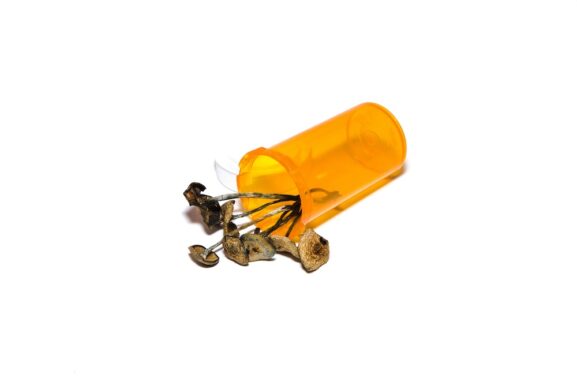Psychedelics Could Help People Quit Smoking
A new study has provided some hope for anyone who’s tried (and failed) to quit cigarettes. And surprisingly, it looks like psychedelics could be the one option to help people quit smoking.
New: Interested in Being Part of a Psychedelics-Focused Clinical Trial? Sign Up Here
The Role of Psychedelics
Psychedelics, such as psilocybin, have garnered attention for their potential in treating various addictions. A systematic review published in Discover Mental Health examined the efficacy of psychedelics in addressing tobacco use disorder. The review analyzed studies up to March 2024, identifying eight pertinent publications. Notably, seven of these focused on psilocybin, suggesting its promise in aiding smoking cessation.
Looking for treatment? Find ketamine clinics closest to you as well as other psychedelic therapies in your area.
A Breakdown of the Smoking Cessation Study
| Parameter | Details |
|---|---|
| Study Type | Clinical trial |
| Participants | 15 mentally healthy smokers |
| Psychedelic Substance | Psilocybin |
| Therapeutic Approach | Combination of psilocybin sessions and cognitive-behavioral therapy (CBT) |
| Main Outcome | Smoking cessation |
| Success Rate at 6 Months | 80% (12 out of 15 participants achieved abstinence) |
| Comparison to Conventional Methods | Significantly higher success rate compared to traditional cessation therapies (<25% one-year success rate) |
| Mechanism of Action | Interaction with 5-HT2A serotonin receptors leading to altered states of consciousness and insights |
| Follow-Up Duration | 6 months |
| Study Limitations | Small sample size, limited diversity of participants, short follow-up period |
Clinical Insights
One significant study involved 15 mentally healthy smokers who underwent psilocybin sessions combined with cognitive-behavioral therapy. The results were compelling: 80% of participants achieved abstinence at the six-month follow-up. This outcome contrasts sharply with the modest success rates of conventional therapies.
Read more on this story at Marijuana Moment.
Mechanisms at Play
What makes psychedelics effective in this context? Research indicates that substances like psilocybin interact with serotonin receptors, particularly the 5-HT2A receptor, leading to altered states of consciousness. These experiences may facilitate profound personal insights and behavioral changes, potentially reducing the compulsion to smoke.
Broader Implications
Beyond psilocybin, other psychedelics—including ayahuasca, mescaline, peyote, LSD, LSA, and DMT—have been explored for smoking cessation. However, the evidence remains insufficient to draw definitive conclusions about their effectiveness.
Looking Ahead
While the findings are promising, they also prompt reflection. Could psychedelics redefine our approach to addiction treatment? What ethical and safety considerations should guide their integration into mainstream therapy? As research progresses, these questions will be central to the discourse on psychedelics in medicine.



